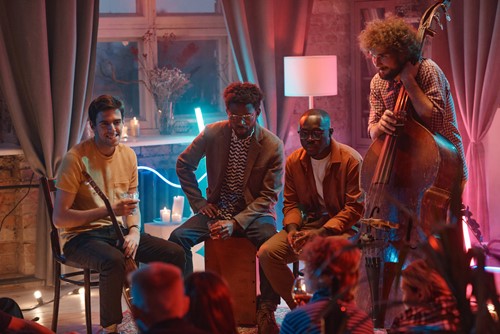Decentralized Music: What It Means and Why It Matters

The music industry has long been dominated by centralized systems. For decades, record labels, streaming platforms, and a handful of executives controlled nearly every aspect of an artist’s career—from which songs were released to how profits were divided. While these systems created global stars and brought music to millions, they often left smaller artists and niche genres struggling to break through. Fans, too, were reduced to passive consumers, with little say in the industry they kept alive.
Decentralization is changing all of that. By removing traditional gatekeepers and redistributing power, decentralized music platforms are creating a fairer and more inclusive music ecosystem. This shift allows artists and fans to work together directly, without the interference of corporate interests or algorithms that favor mainstream hits. At its core, decentralization means putting control back into the hands of the people who create and consume music.
For music fans, the concept of decentralization might feel abstract, but its impact is tangible. Imagine being able to support your favorite artists without worrying about how much of your money is being siphoned off by middlemen. Decentralization makes this possible by using transparent systems—often powered by blockchain technology—that ensure fair distribution of royalties and revenue. When you invest in a song or participate in a streaming challenge on platforms like FanRaizd, you’re part of a decentralized model where your contribution directly benefits the artist and the music you care about.
Centralized systems have long failed emerging artists and niche genres. These models prioritize marketability and mass appeal, leaving little room for innovation or diversity. Emerging artists often struggle to gain traction because they lack the resources or connections to navigate these gatekept systems. Decentralization disrupts this cycle by giving artists direct access to fans and allowing them to fund their work through community support. This opens doors for musicians who might otherwise be overlooked, ensuring that a wider variety of voices and sounds can thrive.
Fans and artists thrive together in a decentralized music model because it’s built on collaboration and mutual benefit. Artists gain the freedom to create without compromising their vision to fit industry norms, while fans enjoy the satisfaction of being active participants in the music they love. Through tokenized music rights, fans can share in the success of their favorite songs, earning royalties as the music gains streams and popularity. This partnership transforms the traditional relationship between artists and listeners, turning it into something far more meaningful and impactful.
The shift toward decentralization isn’t just happening in music—it’s part of a larger cultural movement across creative industries. Platforms like Patreon and Kickstarter have already demonstrated the power of direct creator-to-fan support. Decentralized models are simply the next step, leveraging technology to make these relationships even more transparent and rewarding. In music, this shift represents a profound change in how success is achieved, celebrated, and shared.
Decentralized music isn’t just about fairness; it’s about reimagining the entire industry. It challenges outdated structures, empowers underrepresented artists, and gives fans a voice in shaping the future of music. Platforms like FanRaizd are at the forefront of this movement, proving that when you remove gatekeepers and foster collaboration, the possibilities are endless.
As we move further into this new era, the question isn’t whether decentralization will transform music—it’s how quickly it will become the standard. For fans and artists alike, the future is full of opportunity, creativity, and shared success. Are you ready to be part of the revolution?